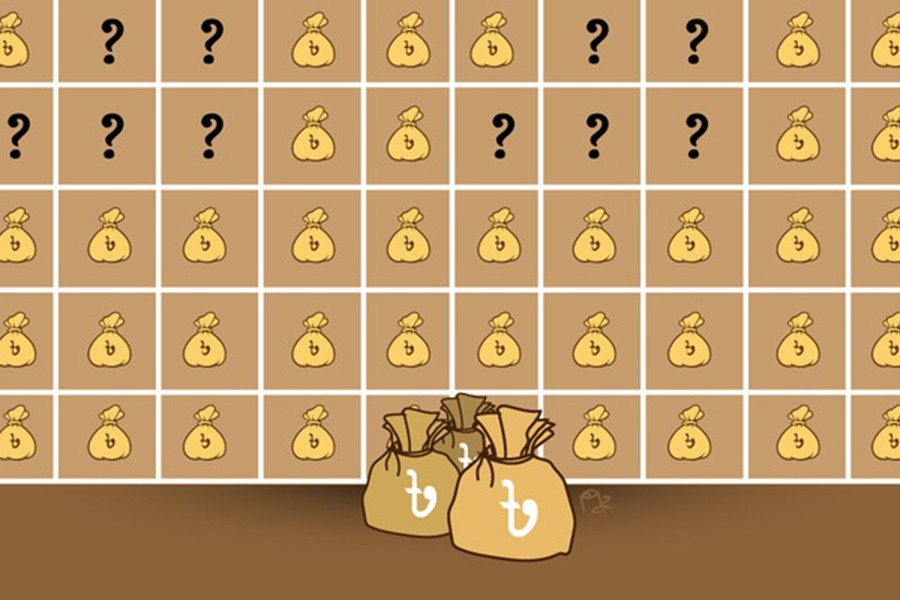After a deviation of two years due to the coronavirus pandemic, Bangladesh has geared up to get back on track with development by designing a budget with a massive deficit, planning to raise more than Tk 1.0 trillion from banks.
On Thursday, Finance Minister AHM Mustafa Kamal presented the Tk 6.78 trillion budget for the 2022-23 fiscal year in parliament.
Tax revenue is estimated to rise 11.31 per cent year-on-year to Tk 4.33 trillion, which can be highly challenging to implement, reports bdnews24.com.
Even then the gap between income and expenditure is expected to stand at Tk 2.45 trillion or 5.5 per cent of the nation’s gross domestic product.
The government aims to get Tk 1.06 trillion from the banking sector, Tk 350 billion from selling savings certificates, and Tk 50 billion loans from other domestic sources in the upcoming budget.
A decade before the onset of the pandemic, the government tried to keep the deficit below 5.0 per cent of GDP while designing the national budget. An uptick in the deficit was evident in the last two years, leading to deficits that were 6 and 6.2 per cent of GDP to meet the country's needs amid the pandemic. It has dropped a little this fiscal year but still did not go down below the traditional 5.0 per cent yet.
The government has to take loans to meet the deficit when it has more expenditure than income. It takes out loans from foreign and domestic sources, private and government banks, sells savings certificates to people and gets loan from the central bank to meet the deficit.
At least 38 per cent of the Tk 6.78 trillion budget has to be managed from loans in the FY23 budget. The finance minister shared the plan to get Tk 987 billion from foreign sources and Tk 1.46 trillion from domestic sources.
In the past few years, Bangladesh has borrowed more from foreign sources for its mega projects. But it has to spend dollars from its foreign exchange reserves to pay the interest on such loans. Forex reserves are currently under pressure as the dollar price has surged with the onset of the Ukraine war.
The government, therefore, adopted a policy to discourage the imports of luxury goods and to delay the financing of non-emergency projects. Focusing on local sources for loans rather than foreign ones also suggests the government’s effort to save dollars.
Also, the FY23 budget includes a tentative income of Tk 30 billion from foreign funds.
With the increase in loans, liquidity in the economy rises, which intensifies the risk of high inflation. Also, the government needs to pay the loan interest as well.
Selim Raihan, executive director of South Asian Network on Economic Modelling, does not see anything ‘uncomfortable’ in Bangladesh taking foreign loans but suggests the government be more cautious in the future while taking loans.
“We need to see if the loan is being used in productive sectors and what result it brings.”


